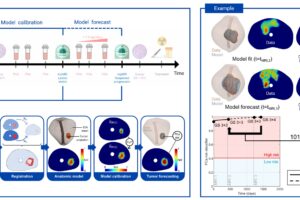The incidence of death, disease, crime and addiction have all been made worse by the country’s “war on drugs,” says a former narcotics officer who called for America to end its drug war addiction.
Delivering a School of Social Work lecture Oct. 17, Jack Cole said the country should end drug prohibition just as it ended alcohol prohibition in 1933.
“Despite the fact that we’ve been fighting this war for 37 years, drugs continue to get cheaper, more potent and easier to obtain,” said Cole, executive director of Law Enforcement Against Prohibition (LEAP), an organization calling for the legalized regulation of drugs. “It doesn’t take much to see that something is terribly wrong here.”
LEAP believes a system of regulation and control of production and distribution will be far more effective and ethical than one of prohibition. The organization, founded in 2002 and modeled after Vietnam Veterans Against the War, is a non-profit international education group of former and current police officers and government agents.
“We should treat drug abuse as a health problem, not a crime problem,” Cole said.
Before 1914, heroin could be bought from a grocery store. Then in 1914 it was decided to make some drugs illegal, said Cole. In 1970, President Richard Nixon introduced the war on drugs, saying that 1.3 percent of the population was addicted.
Today, the percentage of people addicted has not changed despite the fact that the country has spent more than a trillion tax dollars and made 37 million arrests for nonviolent drug offenders, said Cole, adding that building prisons is the fastest growing industry in the United States.
“The war on drugs is a constantly expanding disaster,” he said. “School children report it is easier to buy illegal drugs than it is to buy beer and cigarettes.”
When a drug is prohibited, an underground market is immediately created, said Cole. It becomes dangerous to produce and distribute, and the drug’s value is artificially inflated.
“To remove the profit motive, we must end drug prohibition,” he said. “When we ended alcohol prohibition in 1933, Al Capone and his smuggling buddies were out of business.”
The country’s policy of a war on drugs also has “needlessly destroyed lives of young people, corrupted police and is steeped in racism,” according to LEAP.
The talk was sponsored by the Dean Jack Otis Social Problem and Social Policy Lecture Series in the School of Social Work. Otis was dean of the school from 1965 to 1977. The Drug Policy Forum of Texas and the Cullen Trust Centennial Professorship in Alcohol Studies and Education in the School of Social Work also sponsored the lecture.



